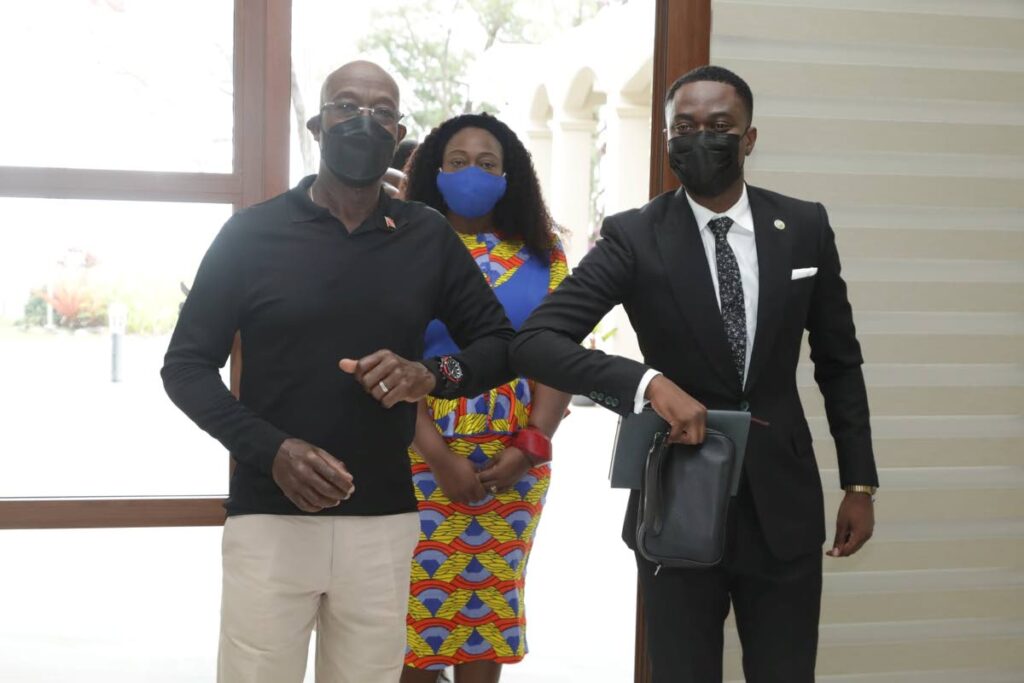What Rowley, Farley have in common

IT MIGHT be hard, in the current political climate, to imagine any common ground between the Prime Minister and Chief Secretary Farley Augustine.
Yet both have managed in recent weeks to demonstrate their commitment to the same thing: secrecy in governance.
Dr Rowley’s declaration on Monday that he will henceforth not communicate with Mr Augustine unless there is a third party present is revealing.
“Up to this point, I have spoken to him on the phone,” the PNM political leader disclosed at a party event in Calder Hall, Tobago. “We communicate on WhatsApp and we sit down and talk.
"But I am telling you all, from tonight, I want nothing to do with Farley unless there is a third party.”
The comments came amid the unfolding brouhaha over the post of the Tobago House of Assembly (THA) chief administrator. There is supposed to be collaboration to fill this position, but there have been claims and counterclaims by Dr Rowley and Mr Augustine and company in relation to it. The Public Service Commission, meanwhile, has done little to clear the air.
In the wake of the 14-1 result of the 2021 THA election in which the PNM lost power, nobody is surprised that PNM officials in Trinidad and Mr Augustine are now at loggerheads.
Long before the issue of the chief administrator erupted, Dr Rowley penned an open letter in April in which he expressed the view that Mr Augustine had lost his mandate to govern, owing to changing political party dynamics. He also expressed concern over how Mr Augustine and company were interpreting law.
But the PM’s comments on Monday also came after Mr Augustine’s volley of accusations and admissions on Friday in relation to an audio recording of a plan to use THA funds to pay propagandists.
While addressing that matter last week, the Chief Secretary tried to make a case for the sanctity of closed-door Cabinet deliberations, suggesting a similar requirement for secrecy applied to THA council deliberations. He sought to place the deliberations captured in the audio recording within the ambit of such a requirement, premised on the constitutional doctrine of Cabinet responsibility, which is meant to allow free ventilation of issues.
Dr Rowley’s declaration on Monday begs the question: was communication really happening between the two highest executive officials in both islands in the absence of third-party involvement all along?
Informal, behind-the-scenes discussions are par for the course in any system of politics. For example, talks “behind the Speaker’s chair” are common in Parliament.
But when it comes to the exercise of official constitutional and legal duties, there should be no secrecy.
We hope all this commess will make all political leaders take note.


Comments
"What Rowley, Farley have in common"